#Design Experiements
Text
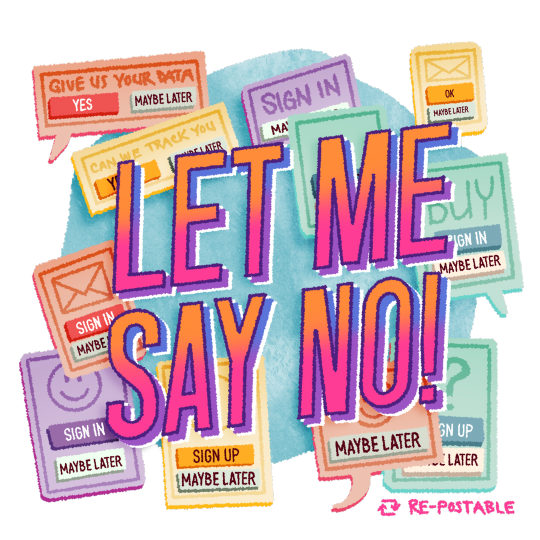
I'm fed up with "maybe later".
95K notes
·
View notes
Text
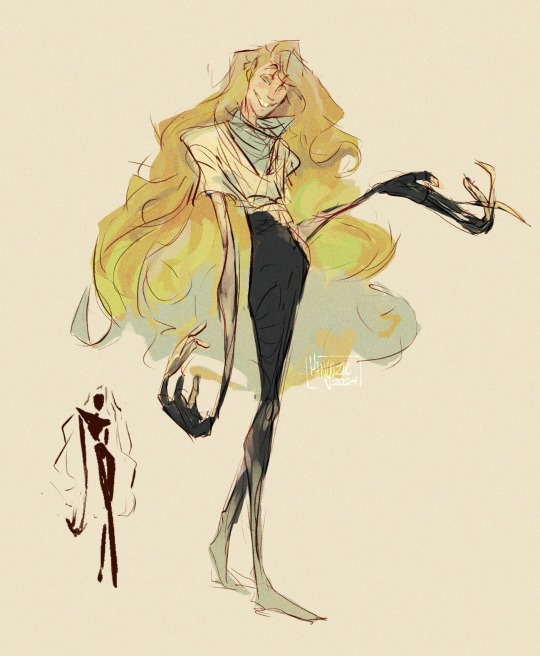
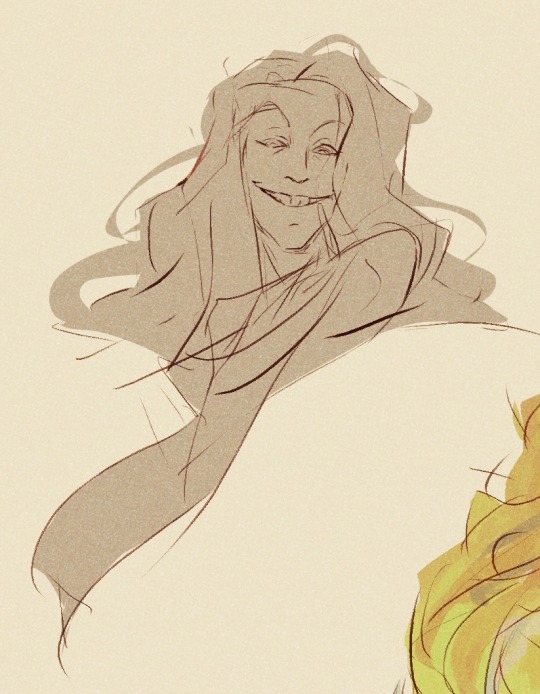
michael distortion what a goofy guy
#still experimenting with his design but i think i might be onto something#he’ll probably change in the future but for now there’s the boy#rattles him around in a jar#i have nothing more to offer but sketches#this week has really been kicking my ass#doodling tma to keep myself sane at this point#the magnus archives#tma#michael distortion#fanart#tma fanart#my art#digital art#doodle#sketch
11K notes
·
View notes
Text
The colorblind Alastor headcanon is so fun to think about I made an entire comic page about it pls be proud of me guys

He chose the more vibrant one lol (if image quality is bad pls click on it)
Bonus doods (Alastor admitted the truth):

#if you noticed my Alastor design changing all the time pls ignore#I’m experimenting w my style to see what I like more#I did most of this on a 13h flight y’all bye I’m 🛌#hazbin hotel fanart#hazbin hotel#alastor#alastor hazbin hotel#hazbin alastor#hazbin art#hazbin hotel alastor#radio demon#hazbin hotel 2024#lucifer hazbin hotel#hazbin lucifer#lucifer magne#lucifer hazbin#hazbin hotel lucifer#lucifer morningstar#lucifer x alastor#alastor x lucifer#radioapple#duckiedeer#appleradio#thorium.art
6K notes
·
View notes
Text
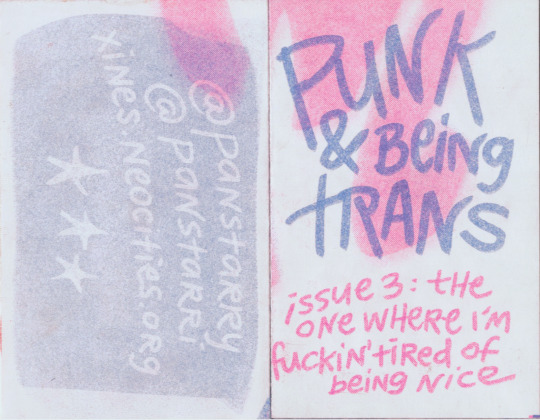
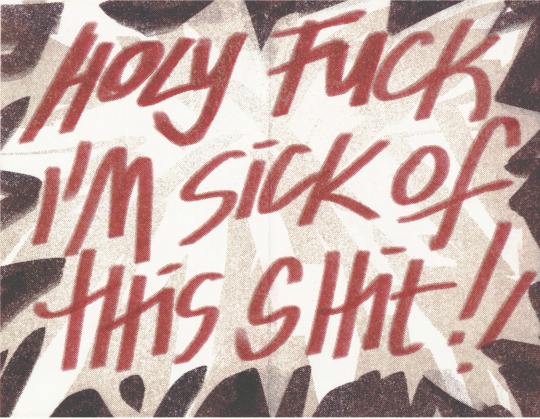
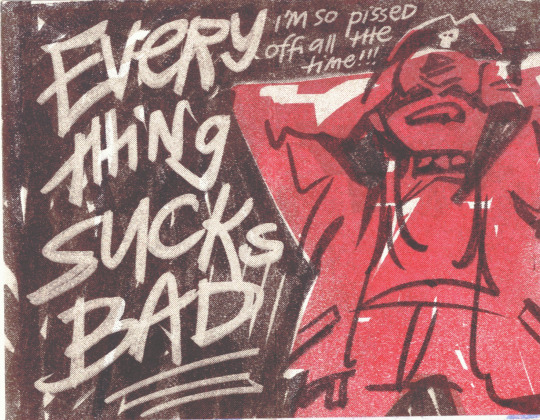
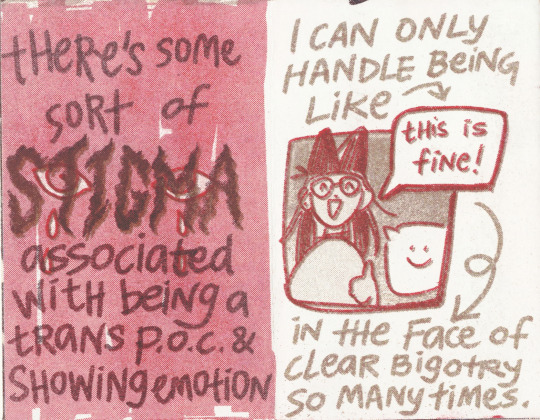
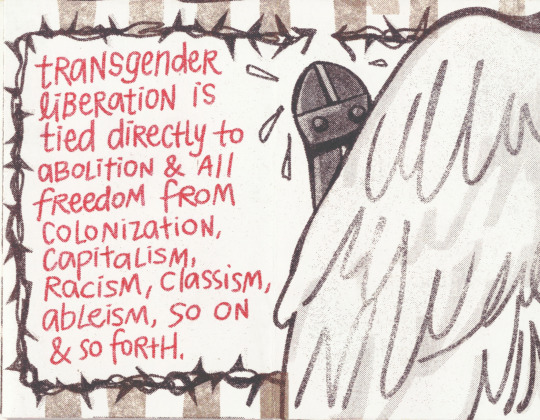
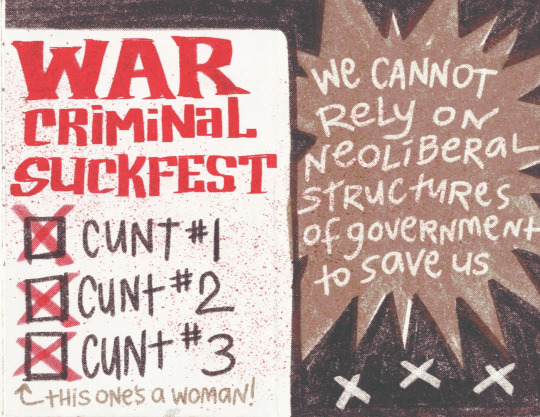
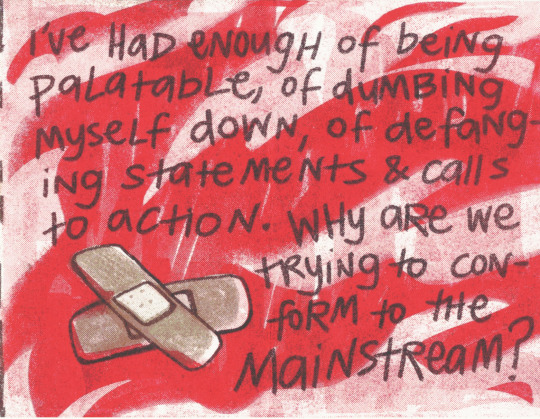
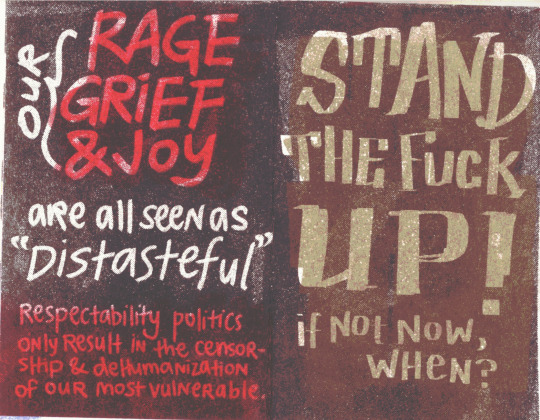
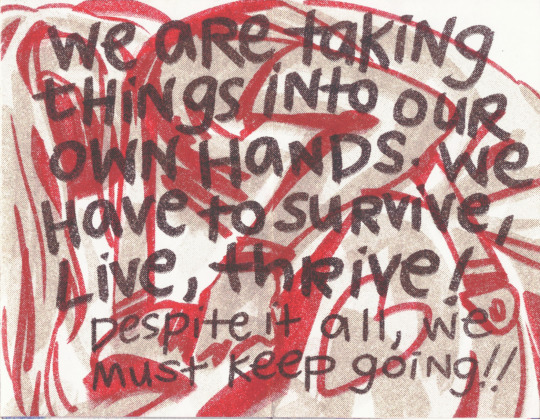
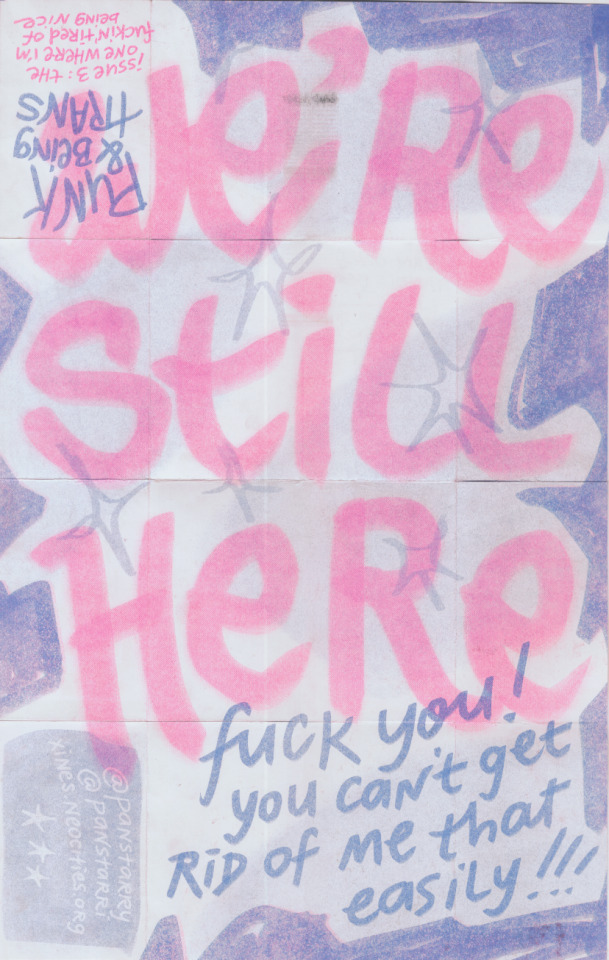
my final from last semester that i made into a zine. cooked this one up in a couple hours before the critique (the ink was still wet!), so it's very raw and kind of sloppy but the sentiment is there. i love you trans people of color. we are the backbone of this community 🌟
#pan draws#pan designs#zine#risograph#i'm not gonna lie i don't love how this one turned out OTL and i think the wording is not done but well... a deadline is a deadline#i'll probably touch it up and rewrite it in the future but who's to say.. i need to stew on how to articulate my feelings coherently#anyway my transness is so closely tied to my experience as a person of color. the current political climate is so fucking ass to exist in#but more than anything i am pissed off at white punks & leftists & trans people that refuse to have meaningful solidarity with us.#so yeah anyway. i was stuck on this one forever and only really got anywhere with it after attending 2 punk noise shows in a row where they#actually used their fucking platform to do like. anything. our struggles are connected you need to careeeee YOU HAVE TO CARE........ ok bye#tdov#trans day of visibility#<- i was sitting on uploading this for a while so the stars kind of aligned for it to be today huh.... happy tdov i love you#xines
3K notes
·
View notes
Text
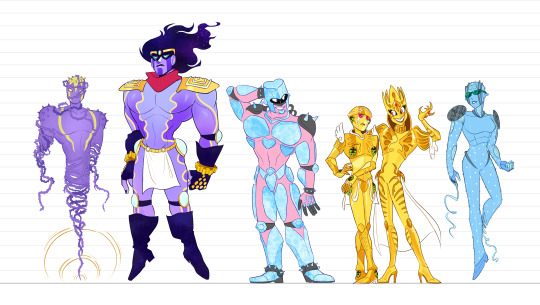

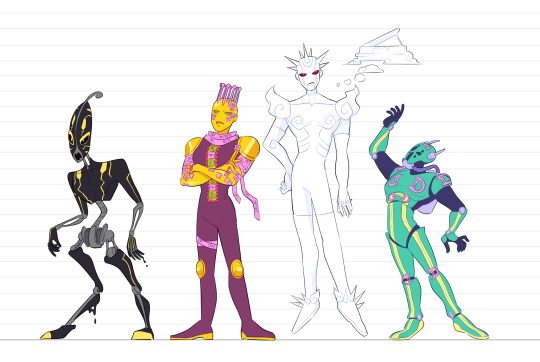

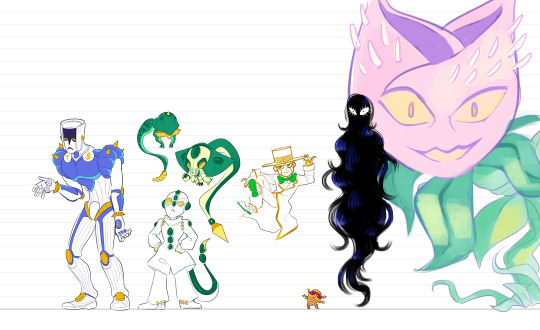
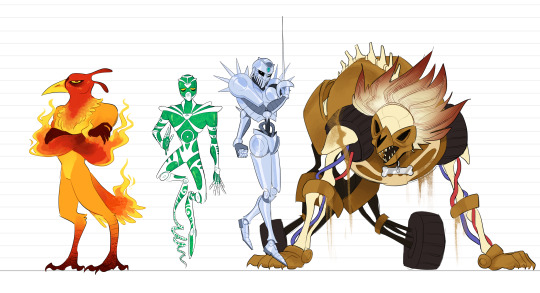
I HAVE DRAWN ALL OF THE (main) STANDS
These are the designs I'm gonna be using for my Standverse AU (this is a link) where all the stands get trapped in a 'purgatory' without their users and are forced to be sentient.
CHARACTER BIOS HERE
#jjba#jjba stands#stand designs#jojos bizarre adventure#jojo's bizarre adventure#jjba fanart#jjba au#stone free#star platinum#crazy diamond#gold experience#gold experience requiem#ger#hermit purple#the world#za warudo#killer queen#king crimson#whitesnake#c-moon#made in heaven#mih#art#fanart#arrt#character lineup
4K notes
·
View notes
Text
It's actually kind of impressive how ill-conceived this whole "Notes Preview" business is. At a single stroke, it's been rendered impossible to curate one's experience even on one's own dashboard – now it doesn't matter that you've carefully followed a group of blogs you can trust not to reblog noxious bullshit, because with every post that crosses your dash there's now a chance that Tumblr will automatically append some random asshole's opinion about that post, in a way that neither you nor the person you're following can predict. Bravo.
36K notes
·
View notes
Text



who let this freak get a job
#ninjago#lloyd garmadon#parcaeive#:3#i only drew this bc i have an interview tmr and im scared af and i needed to push all this anxiety onto some body.#and also this is how i felt putting 'security team leader' on my CV . for a design position in my uni student council . im crying#listen... any team org experience is team org experience
1K notes
·
View notes
Text




I love these ominous snake people
#me googling how to get job at wildbrain at 4am!!!#s5 was so good man#really love this show#thinking abt animation got me going nuts#if anyone has advice on how to get art internships...#please let me know!!#i would love to do storyboard or design work for experience#monkie kid got me feelin straight up inspired 🔥#mk#qi xiaotian#lmk mk#lmk nuwa#nuwa#lmk s5 spoilers#lmk season 5 spoilers#monkie kid spoilers#lego#monkie kid#lmk#lego monkie kid#xiangliu#love this dude
2K notes
·
View notes
Text
Something so important to me about Kabru is the way so many of his experiences with humans parallel Laios', and yet they ended up with exact opposite feelings about them. Laios loves monsters, Kabru hates them. Laios wished he was a monster (so he wouldn't have to deal with people who hated him), Kabru grew up believing he already was one (his father being an incubus would explain why people hated him). Laios is aware that people tend not to like him, so he's given up on trying to endear himself to them. Kabru is aware he doesn't fit in anywhere he goes, and is desperate to trick people into thinking otherwise. When Laios was a kid he would fantasise about the exact type of event that ruined Kabru's life.
Laios loves monsters, and he excells at killing them. Kabru is exactly the same for people, despite having every opportunity to choose to hate them instead.
#it's so fucking interesting. thank you Ryoko Kui we all say in unison#she wins the 'designing characters that are ideological foils despite their parallel experiences' competition for sure#kabru of utaya#dunmeshi#dungeon meshi#kabru#laios touden
2K notes
·
View notes
Text
Ok I get where everyone is coming from when they see the design of Pavitr ‘Pav’ Prabhakar aka Indian SpiderMan as an expression of gender queerness, but let me be frank this is very typical Indian male costuming.
Even the toxic masculine patriarchal men have similar stylistic expressions or to be be more precise this is a traditional/historical/ye olde male aesthetic.
Having said that I love what design elements are being used here. So…
Let's take it from the top.
The FACE MASK
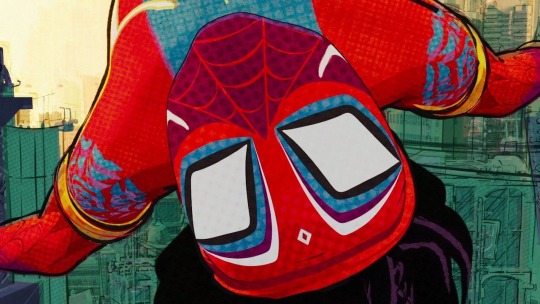
The Three Colors surrounding the eyes are typical spider man colours but they are done to evoke the image the traditional makeup done for the ancient dance art Kathakali. In which the whole face is painted and bold lines are drawn to emphasise/exaggerate the eyes. These eye mask lines are usually thin - bold-thin.
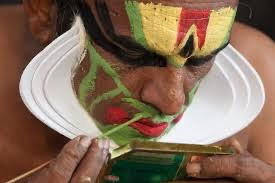
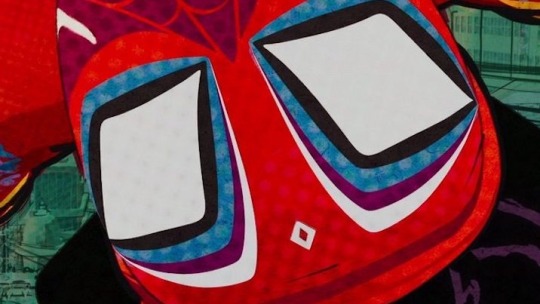
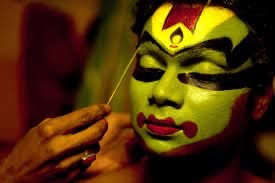
Same with the white lines on the cheek bones which are indicative of tusks or pincers of demons or Animorphs in folklore/myths.
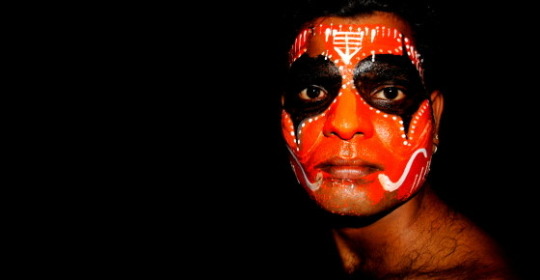
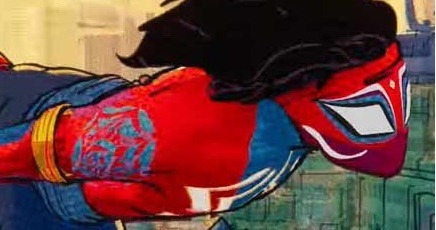
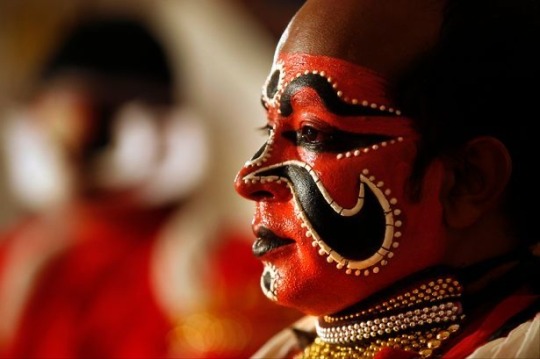
The white dot in the centre of the forehead is the most common Hindu motif, expressed in myriad of ways all over the country .
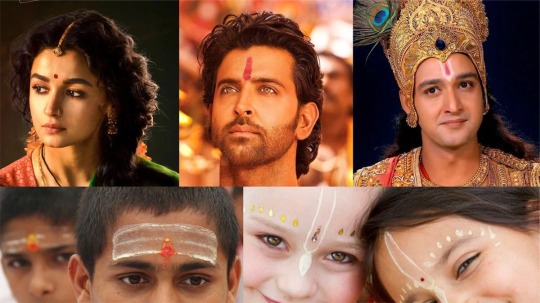
The ARM/LEG BANDS/CUFFS
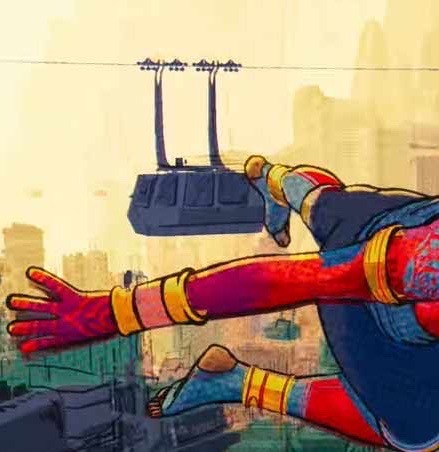
The bicep cuff is a part of Indian historic armour - made of malleable metal, its bejewelled ornate counterparts were then worn in day to day life. Here in the north Royals still wear it during big ceremonies. These metal bands are generally worn by warriors.
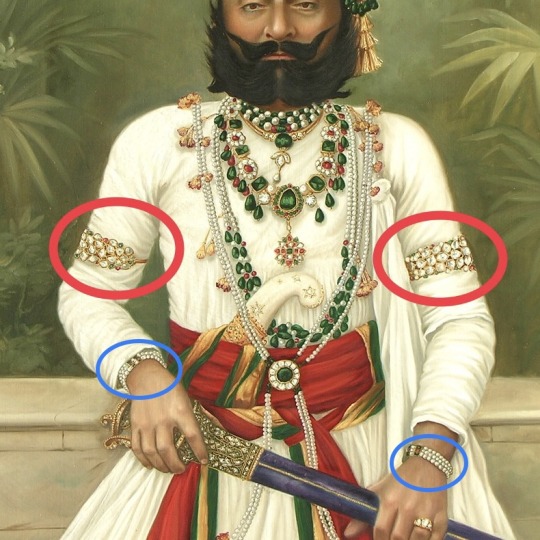
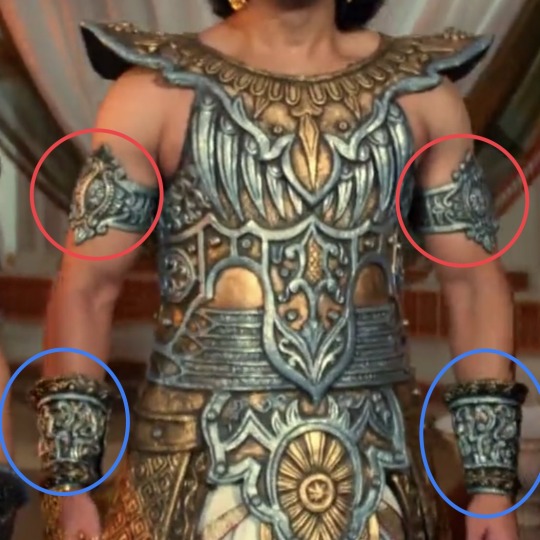
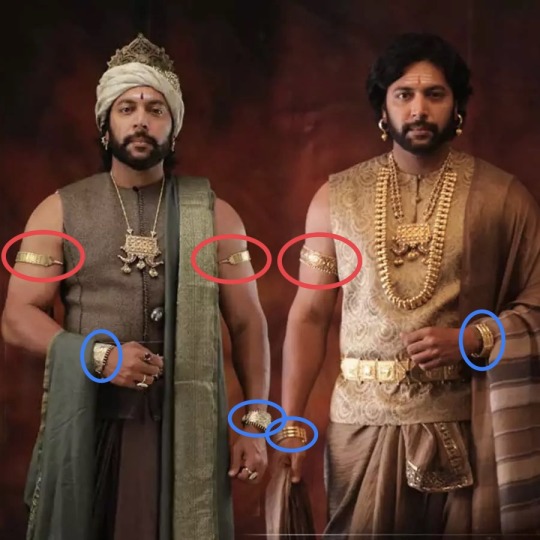
bangles (metal circles worn at wrists) are an important male accessory and are more daily wear even in present modern times, some religions (Sikh,Jain etc.) require the males to always wear one at all times. The ones on the suit were more in the shape of wrist guards which again were an armour accessory. In Indian male clothing the cuffs are usually emphasised.
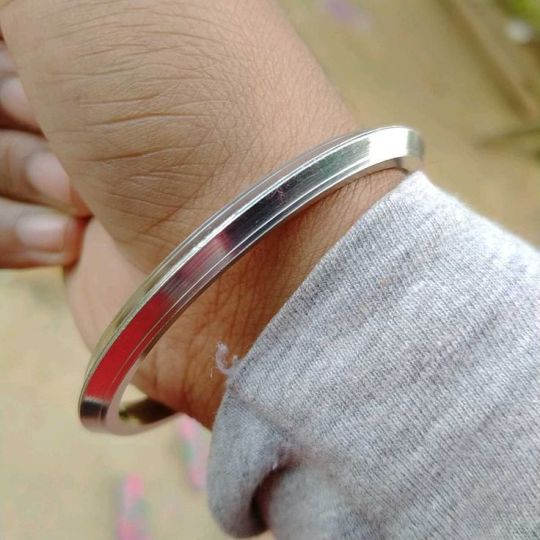
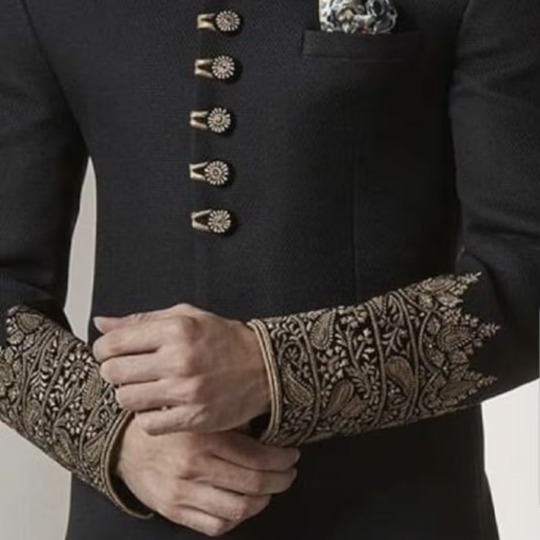
Due to traditional male footwear being sandals metal ankle cuffs were employed to guard the shins and were worn during wars while thinner bands - ornamental accessories - were worn in daily wear.
There are so many other things I want to elaborate on like: The PATTERNS/LOGO,The LEG GARMENT (??!)(what’s the collective term for clothes for legs?), The Cat’s Cradle swinging/body animation ; but my ADHD is already acting up so imma leave this here.
SIDE NOTE:
I love how the heel and toes are bare in this design. It makes sense from the spider powers perspective - no barrier in contact allows for better manoeuvring and jump control as is seen in gymnastics. But also because in Hindu culture important tasks including some traditional sports require the removal of footwear and getting feet dirty is not discouraged (of course with an adherence to washing of the feet multiple times in a day)
I also loved how incorporated his wrist guard is in his spider style using it as a toy and a tool. This aspect of making use of something in a completely different way was so desi ‘Jugaad’ I was stunned.
#spiderman atsv#across the spiderverse#pavitr prabhakar#desi#design#letting my inner design nerd out#Indian warfare was my special interest#If you haven’t guessed by now#astv#desi experience#sony spiderverse#into the spider verse#Desi spiderman#indian spiderman
9K notes
·
View notes
Text

goofy aah moonpaw
#warrior cats#wc#moonpaw#art#digital art#fanart#she's so precious#love experimenting with her design
2K notes
·
View notes
Text
“Across cultures, darker people suffer most. Why?” Multiethnic and Multicultural Blackness
“Across cultures, darker people suffer most. Why?”- Andre 3000
Tell me what's wrong with this picture.

Hint: This is Miles Morales- from the video game depiction- canonically an Afro-Puerto Rican. Jefferson is Black American; Rio is Puerto Rican.
So why is the Cuban flag on their wall?
This is what happens when no one (with any saying power) in the board room is representative of the group being depicted! And mind you, this was produced under SONY and MARVEL, for the PS5, a product under two brands that combined churn out hundreds of millions in profit! And… No one on any level corrected them until the beta came out and fans saw it. That's how pervasive this sort of ignorance of other cultures can be. How are you writing a story about a character, and you don't even know how he identifies?
Multiethnic & Multicultural Blackness
Realistically, you’ve probably walked past many a biracial, multicultural, or multiethnic Black person before and assumed they were “just Black”. One example: Rae Dawn Chong- known as Mama du Pointe du Lac- is Afro-Chinese, but that Chinese background did not play into the role she played. A more personal example: my recent loctician was also Afro-Chinese, with very dark skin (she made jokes about how her eyes reveal it, but we can’t make those jokes here). I would have never known.
Point is, we reacted to what we saw, and that’s not an accident. Blackness is treated as a monolith, and an indicator of social level whether you realize it or not. You see a ‘Black’ person, and without wondering any further about their identity, you will treat them as you’ve been socialized to treat ‘Black’ people! But every Black person is not the same!
You don't have to write an entire essay with citations mid-story about how you learned so much about the Afro-Chicana or Afro-Iraqi experience for your main character. We didn't ask. But, slipping natural things here and there into the story of a character’s culture helps cement that yes, this character has this multicultural identity and it matters to them; it is who they are, it has an effect on their life and character in some way. It is how you deepen the character and show respect for the culture you are depicting!
I love using Miles as an example, so here’s a good example. In Across The Spiderverse, he goes to a party to celebrate Jefferson’s new position. In that scene, Rio walks through a mix of all his family members. Even when he speaks with his parents in this scene, they managed to incorporate his Afro-Puerto Rican identity without shouting to the rooftops “HEY! HE’S BLACK AND LATINO! SEE HOW I’M TELLING YOU?”
Race vs Ethnicity
The Black experience stretches as far as the African diaspora- worldwide! It's why it's frustrating when people assume "Black people" means "United States" and the West's perception of "Third World Africa" (especially when it comes to existing in media that people have strongly claimed is just White). Latin and Central America? West Europe? East Europe? Southwest Asia and North Africa? The Mediterranean? East Asia? Australia? You will find Black people!! Just because we aren't the majority doesn't mean we aren't there!
But just because we're Black doesn't mean we're all "African-American". Ethnicity is "the quality or fact of belonging to a population group or subgroup made up of people who share a common cultural background or descent." Race is "a categorization of humans based on shared physical or social qualities into groups generally viewed as distinct within a given society."
"But I thought you said Black is an identity!"
It is! Black does not only mean “Black American”. The reason Black Americans identify as just Black (which is why I demand that you show respect by capitalizing it) is due to the loss of our specific heritages from the enslavement meant to scourge us of them, to make us property. To call us by our actual names would be acknowledging our equivalent humanity and culture. In order to enforce slavery without qualm, they had to be violently removed. Black Africans of numerous ethnic groups, now violently forced into this amalgamation, had to come together and forge something new. We had to find a common connection- our Blackness (and that experience as defined by whiteness in this society) was it. It also functions as a reclamation of our identity, of our presence in this world. We are a culture, we are an entire group of people, and we should be acknowledged as such.
youtube
Again: all Black people are NOT the same!!! This is like… anti-racism 101, but so many people continue to fall for it, even those ‘well-meaning’. You cannot ask one Black person to represent the ENTIRETY of the world's Black experience. Many other factors will come into play, and this includes their culture.
Keep in mind how being multicultural and/or biracial and Black will put many people at a crossroads that is complex and difficult to traverse. There will always be parts of incomplete acceptance, an extra layer of code-switching based on where you are and who you're with. A Black Kenyan is not a Black American, who is not a Black Greek, who is not a Black Colombian, who is not a Black Filipino. They're different cultures, that will treat each other differently. Society- from strangers to your own family- may try to pull multiethnic Black people one direction or another- are you ‘Black’ enough, are you ‘technically Black’, are you ‘technically’ something else, are you that ethnicity enough?
(I will discuss Black biracial people with whiteness in the next lesson, because I felt like the interracial and biracial White & Black topic needed its own talk, but this is relevant there as well.)
Where- In the world- Is-
Coming back from the opening of this lesson: keep in mind that you need to know specifically WHERE your character is from! For example, just saying they're "Afro-Latino" reveals very little- there's an entire chunk of the planet that falls under the "Latin America" category (as defined by U.S. standards).
A follower of mine- they identify as Caribbean Latine- sent me this in discussion about the topic:
"I wish people actually thought about where their Afro-Latino characters are from. It’s always very vague and it’s so reductive because an Argentinian Afro-Latino is very different from a Puerto Rican Afro-Latino. This is very subjective but I think this issue is pretty blatant in The Owl House. They flash the Dominican flag a couple of times, but when it comes to actually making her Afro-Latino…I don’t think they did a very good job. They barely made her Black in the first place. I don’t want to dog on the voice actors too much because there are a million factors that might have affected this but. When they make a point to have the characters speak Spanish, it’s really noticeable when the accent/dialect doesn’t align with their ethnicity. Dominicans have a really identifiable dialect in Spanish. When the Afro-Latino characters speak in Spanish, it’s the most neutral accent I’ve ever heard. This is such a me-issue, but this is to say that people should actually research where their characters are from instead of vaguely painting them as Afro-Latino. We are all SOOO different. Our dialects vary so much that sometimes an Afro-Mexican and an Afro-Puerto Rican won’t understand each other even though we speak the same language.”
WHO are we talking about? How does that factor into their identity, and the way the world- both in story, and how readers from around the world- will perceive them? Will an Afro-Dominican know that they're supposed to relate to your character if they're vaguely Latino?
Note:
While I was doing my research, I noticed that searching for “Afro-_” doesn’t always offer much, as it does the ubiquitous antiblack experience and roles in politics and resistance. And while I think that’s super cool and mandatory, I think another way to approach this would be to focus on the culture as a whole, and then go from there. So for example, if I wanted my character to be Afro-Mexican- maybe even from a specific location in Mexico, or their family is from that area- it would be easier to look up the cultures and activities of that area itself, and then inform with my knowledge of how Blackness is treated there.
As I am not a member of these groups, I thought it would be better for me to find resources that better explain, than to try to speak for them myself. Hell, just from doing this research, I learned that I have far more to educate myself on. There are so many good resources out there! People speak on these topics that y’all want to know about, and there are so many books and videos- find them and educate yourselves! This is a long section filled with links, so I'm going to put them under a readmore.
I also could not possibly sit here and name every single ethnic combo because that would be endless. So what I'm going to do is give some broad strokes of a few major groupings, that will hopefully start you on the path of how to conduct your own research!
The African Diaspora
This is such a good resource. There are short chapters going into the details and history of Black people in many regions, all around the globe. I’m honestly in love with how this is set up. It's a good starting point!
Black Africans

This one isn't specifically an example of multiethnicity; I just want to emphasize that there are many ethnicities and cultures within Africa itself! One is still multiethnic if they are Black American and Ivorian, for example! As the birthplace of humanity, there are plenty of ethnic groups in Africa with endlessly rich cultures, and all of them will come with different foods, fashions, languages!
Notable Figures: Nelson Mandela, Tobi Lou, Patrice Lumumba, Tems, Wizkid, Kwame Nkrumah, Chinua Achebe, Chimamanda Ngozi Adichie, Wangarĩ Maathai, Agnes Tirop, Chéri Samba, Sheikh Abdullah Ssekimwanyi
Internalized antiblackness in African countries is due to the long and violent history of western imperialism in Africa. “The Carving Up of Africa” by European nations has long worn on the continent, its resources, and its peoples, and that includes remnants of their beliefs. Another pervasive idea in media is that all African peoples are ‘poor’, ‘living in huts’, and ‘starving’. There are people doing that all over the world, it is not inherent to being Black African. But even if that were the case- and it is not, every African does not live that way- it would still be the fault of aforementioned imperialism. Please do your research, and do not EVER write that if someone is African, they ‘must not be used to food’ or ‘have never seen such magnificent things as [what white character offers]’.
Afro Latinos

Notable figures: Celia Cruz, Frantz Fanon, Zoe Saldaña, Colman Domingo, Lupita Nyongo, Gina Torres, Cardi B, MJ Rodriguez
Notable music styles- Reggaeton? Salsa? Rumba? A lot of the best music of the area has roots in Blackness.
Antiblackness in the Afro-Latino community
Colorism plays a huge role in perception, to the point of putting you into classes of people. From the same Caribbean Latine follower:
Also, they have to do research on racial groupings in LATAM. It’s unavoidable. A Latino that’s considered Black in the USA may not be considered Black in LATAM. This is because of Blanqueamiento. That is a LOT to explain, but TLDR: A big difference between racism in the USA and racism in LATAM is that white people aren’t focused on segregation. It’s racism through imposition. “Blanqueamiento” refers to whitening and it’s the belief that you can cleanse the bloodline by having children with white people. The lineage will get increasingly lighter. That is why whenever a child comes out lighter than their parents, people will praise the parents for “bettering the race” (mejorando la raza). So a light skinned Black person in the USA may have another racial classification in LATAM (prieto, moreno, mulato, etc)."
One example is 'pelo malo' (bad hair)- how afro-textures are deemed unwanted, as a holdover from Spanish colonization and ideas of whiteness being equivalent to purity. Another severe example is of the slur "mayate"- apparently, it means "f*ggot black bug". If you're Black, and someone ever calls you this, know that you are being severely insulted. If you are interested in more Afro-Mexican history, Colonial Blackness by Herman Bennett is a book that follows the stories of enslaved Africans and their descendants in 17th century Mexico, questioning the existing history told that often leaves out their presence.
Afro Indigenous

*Indigenous doesn't just mean "to America", though the links are to the Afro-indigenous experience in the U.S.
Notable Figures: Crispus Attucks, Lucy Parsons, George Henry White, Charlie Patton, Jimi Hendrix, Eartha Kitt, Lena Horne, Ausben Jordan
What’s interesting is that it was much harder for me to find solid evidence of people who are Black Natives, mainly because it seems this history was lost and/or never recorded, or due to Blood Quantum and antiblackness, not acknowledged. That is something worth thinking about, if you are writing an Afro-Native character.
Blood quantum: A system developed by the United States federal government to determine how much “Indian blood” an Indigenous person has and if they are qualified for Tribal enrollment. Blood quantum limits accessibility to citizenship and is designed to decrease enrollment numbers. Today, some tribes still use blood quantum as criteria for Tribal enrollment. As part of their sovereign status, every federally recognized Tribe determines its own criteria for membership and enrollment.
Further reading:
Young, Black Native activists say it's time to appreciate Indigenous diversity
Black Indians: A Hidden Heritage
Blood Politics: Race, Culture, and Identity in the Cherokee Nation of Oklahoma By Circe Sturm (2002)
We Refuse to Forget: A True Story of Black Creeks, American Identity, and Power By Caleb Gayle (2023)
Afro-Arab/SWANA

Notable figures: Bilal ibn Rabah, Fatima Bernawi, Layla F. Saad, Samirah Srur Fadel, Ahmed Osman, Sara El Hassan (known as bsonblast), Ali Jiddah, Maryam Abu Khaled
Here's an amazing resource cataloguing the history of Afro-Palestinians, as well as a timeline of the solidarity between Black Americans, Afro-Palestinians, and Palestinians!
I sat here and tried very hard to come up with a way to summarize this, especially given current events in our world, and I found that at this moment, I lack the skill to do it. Not because there’s nothing to say- God knows there’s plenty- but unraveling the intersections that comes with the SWANA experience would take me far longer than a summary. I think Maryam Abu Khaled can speak on her experience far better than I, anyway:
youtube
Afro-AAPI

Notable figures: apl.de.ap, Michael Ealy, H.E.R., Karrueche, Rae Dawn Chong, Naomi Campbell, Naomi Osaka, Chanel Iman, Anderson Paak
Interview from famous R&B artist, guitarist, actress for Belle, and Afro-Filipina: H.E.R.
There is a strain between Black and Asian communities, in the United States and beyond, white supremacy playing a major role. But that does not mean that we cannot move forward together, or have not shown one another solidarity.
One of my biggest pet peeves that happens often in fandom spaces is fans who claim that Asians- East Asians in particular, but Asians in general- don't know what Black people are and what we look like. It's racist to every ethnicity and background involved. Yes, there are Black East Asian and Black South Asian people. Yes, these countries have access to the Internet to look up what we look like. There have been plenty of well-drawn Black people by those artists. Just like every white artist isn't going to draw a caricature, every Asian artist isn't going to. It all comes down to practice, their commitment to their craft, and their commitment to not being racist. Being from these areas is not an excuse for not drawing Black people accurately- the same amount of effort they can be put into depicting a white person (that would also be a minority in these places), can be put into depicting us as well. Knock it off.
Conclusion
Antiblackness is unfortunately ubiquitous, yes, but that doesn’t mean the rest of every Black person’s life experience is going to be. We are everywhere on this planet, which means there’s a planet’s worth of experiences to be had. If you decide that you want to create a Black character with a multiethnic or multicultural background, you need to commit to that! Even by mentioning their music, or their food, or- if you’re going to get into it- how others might treat them due to their Afro-identity. Something that lets us as the viewers know that you didn’t just write a white person and then claim they were “Afro-Blank” for clout. If you mean it, do it, because as always, it’s the thought that counts, but the action that delivers!
#there are a lot of links in this one#creatingblackcharacters#multiethnic#multicultural#the black experience#black character design#antiracism#colonialism#representation
1K notes
·
View notes
Text




more vivian things
#im experimenting with her design a little i got inspired#specifically @/tanookitalez!! go check out their work i love it sm#im having thoughts about guilty vivian sooo hard.she would absolutely feel guilty about the shadow queen situation#shes related to beldam after all. survivors guilt ^_^#also i think itd be great if she had a tail. she deserves it#paper mario the thousand year door#paper mario ttyd#paper mario#ttyd#vivian#vivian ttyd
1K notes
·
View notes
Text
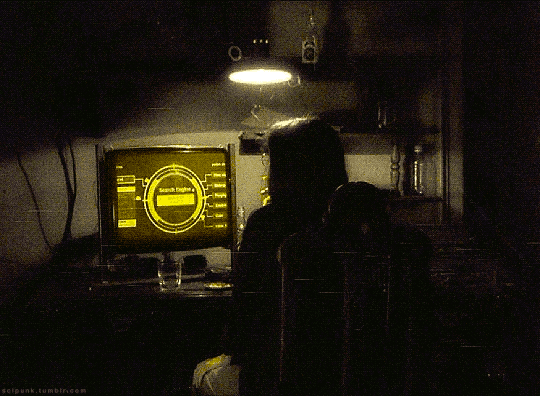



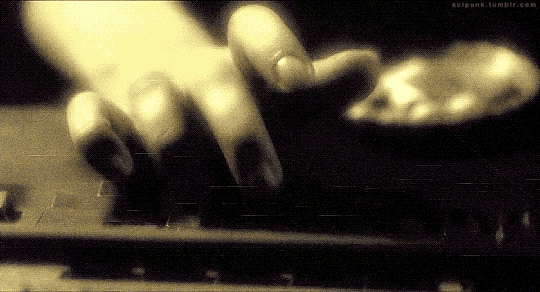


Avalon (2001)
#cyberpunk aesthetic#cyberpunk#scifi movies#00s#graphic design#cyberpunk movies#aesthetic#user interface#dystopian aesthetic#noir aesthetic#computer terminal#user experience#gifs#movie gifs#gifset#film gifs
2K notes
·
View notes
Text
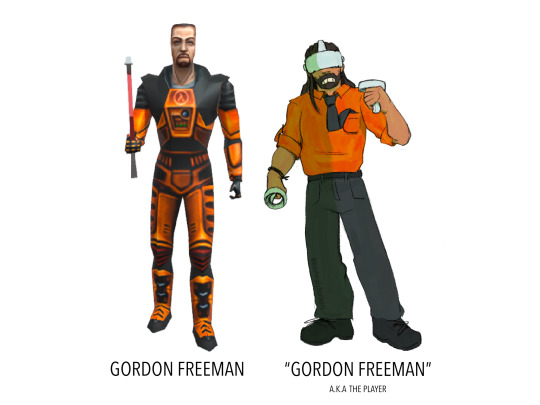
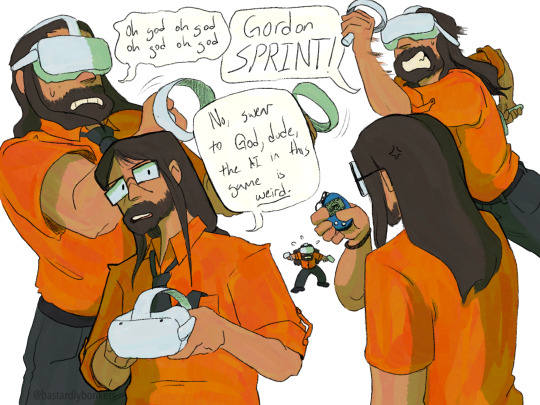
feetman
#hlvrai#half live vr but the ai is self aware#gordon freeman#gordon feetman#so idk if theres any like ‘metastory’ to there being a player or if its literally just supposed to be wayne#but i thought it would be kinda interesting for the player to be his own guy#cause like to me#a big part of it that makes it fun is that gordon has like#no actual stakes#dude is getting pissed for the sake of it#he knows its a game and is just freaking out at the ai being so alive u know#now since i cant remember if theres some kind of canon or metastory to the player you can completely decide for yourself why hes playing#or how he got the game#is he just some guy? is it an experiment? is it for his job? who knows!#hes The Player#also if ur wondering why his design is so similar to gordons#its cause i didnt wanna stray into the unrecognizable lmao#also. i really really really didnt wanna draw the fucking suit#and yes thats benrey on the tamagotchi#i think it would be very funny if he could cart them all around in tamagotchis#sorry for long tags
2K notes
·
View notes
Text

Backgrounds? *puts on sunglasses* I don't know her.
My favorite girl Sansa, here to eat lemon cakes and take names.
#asoiaf art#asoiaf fanart#sansa stark#a song of ice and fire#game of thrones#got fanart#procreate#house stark#costume design#queen in the north#my art#sansa art#illustrations#fanart#drawing my favorite girlie again bc I had to be at my parents' place for a few days and stole my dad's ipad to play w procreate#this is a lil rushed/not as finished as i want it to be for that reason#me beginning this drawing: 'I'm going to not go crazy on the details like I usually do'#me trying to finish this drawing: '...ah beans'#there's supposed to be big fancy embroidery on her long sleeve but i ran out of time#anyways this is just one big giant 'what can i do with procreate' experiment#bc i am still a newbie with it#the show should have had FANCIER CLOTHING#still salty about this#based on my earlier circassian sansa sketch#I am beginning to loathe drawing fur but it is inescapable with my stark kiddos
4K notes
·
View notes